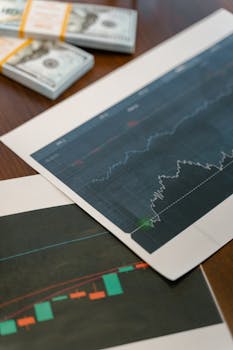+17162654855
+17162654855
DMV Publication News serves as an authoritative platform for delivering the latest industry updates, research insights, and significant developments across various sectors. Our news articles provide a comprehensive view of market trends, key findings, and groundbreaking initiatives, ensuring businesses and professionals stay ahead in a competitive landscape.
The News section on DMV Publication News highlights major industry events such as product launches, market expansions, mergers and acquisitions, financial reports, and strategic collaborations. This dedicated space allows businesses to gain valuable insights into evolving market dynamics, empowering them to make informed decisions.
At DMV Publication News, we cover a diverse range of industries, including Healthcare, Automotive, Utilities, Materials, Chemicals, Energy, Telecommunications, Technology, Financials, and Consumer Goods. Our mission is to ensure that professionals across these sectors have access to high-quality, data-driven news that shapes their industry’s future.
By featuring key industry updates and expert insights, DMV Publication News enhances brand visibility, credibility, and engagement for businesses worldwide. Whether it's the latest technological breakthrough or emerging market opportunities, our platform serves as a bridge between industry leaders, stakeholders, and decision-makers.
Stay informed with DMV Publication News – your trusted source for impactful industry news.
Energy

**
Washington state drivers are already feeling the pinch as the state's newly increased gas tax pushes prices to the nation's highest, sparking widespread anger and calls for reform. The tax hike, part of a larger transportation funding package, has added another layer to the already burdensome cost of fuel, leaving many wondering if the benefits outweigh the burden on consumers. This increase isn't just affecting daily commuters; it's impacting businesses, tourism, and the overall state economy.
Before the recent increase, Washington consistently ranked among states with the highest gas prices. Now, the addition of the new tax firmly places it at the top of the list. Drivers are now paying significantly more at the pump than their counterparts in neighboring states like Oregon and Idaho, leading to a noticeable increase in cross-border fuel purchases. This "fuel tourism," as it's sometimes called, places an added strain on border towns and highlights the economic disparity caused by high gas prices.
The recent gas tax increase is tied to the state's ambitious infrastructure improvement plan. Proponents argue the additional revenue is crucial for repairing crumbling roads, bridges, and public transit systems. The increased funding, they contend, is a necessary investment in the state's long-term infrastructure needs and will ultimately benefit all Washington residents.
However, critics argue the tax disproportionately burdens low- and middle-income families who rely heavily on their vehicles for commuting and daily life. They point to the lack of sufficient alternative transportation options in many parts of the state, forcing drivers to absorb the entire cost of the tax increase.
The effects of the increased gas prices are rippling through the state's economy. Beyond the immediate impact on household budgets, the higher fuel costs are impacting businesses in various sectors:
Many Washington residents are actively searching for ways to mitigate the impact of the higher gas prices. This includes:
The gas tax increase has become a highly contentious political issue, fueling debates about taxation, infrastructure spending, and economic fairness. Opponents are calling for a reassessment of the tax, suggesting alternative funding mechanisms or a reduction in the tax increase.
The state government is under pressure to address the concerns of its citizens while balancing the need for infrastructure investment. The long-term impact of this tax increase on Washington's economy and the political landscape remains to be seen. The coming months will likely bring further discussion and debate regarding the tax's effectiveness and its ongoing effects on the state's residents.
The high gas prices in Washington state are a complex issue with no easy solutions. Potential paths forward may include exploring alternative funding sources for infrastructure projects, investing in public transportation, and promoting fuel-efficient technologies. Further research into the economic impact of the gas tax is essential to inform future policy decisions and ensure a balanced approach that addresses both infrastructure needs and the financial burden on its citizens.
The ongoing debate highlights the need for a comprehensive approach that considers both the long-term benefits of infrastructure investment and the immediate economic impact on Washington residents. The current situation underscores the complex interplay between transportation policy, economic realities, and public opinion, setting the stage for continued discussion and potential policy shifts in the future. The future of Washington's gas prices and the related political landscape will depend greatly on how these challenges are addressed.